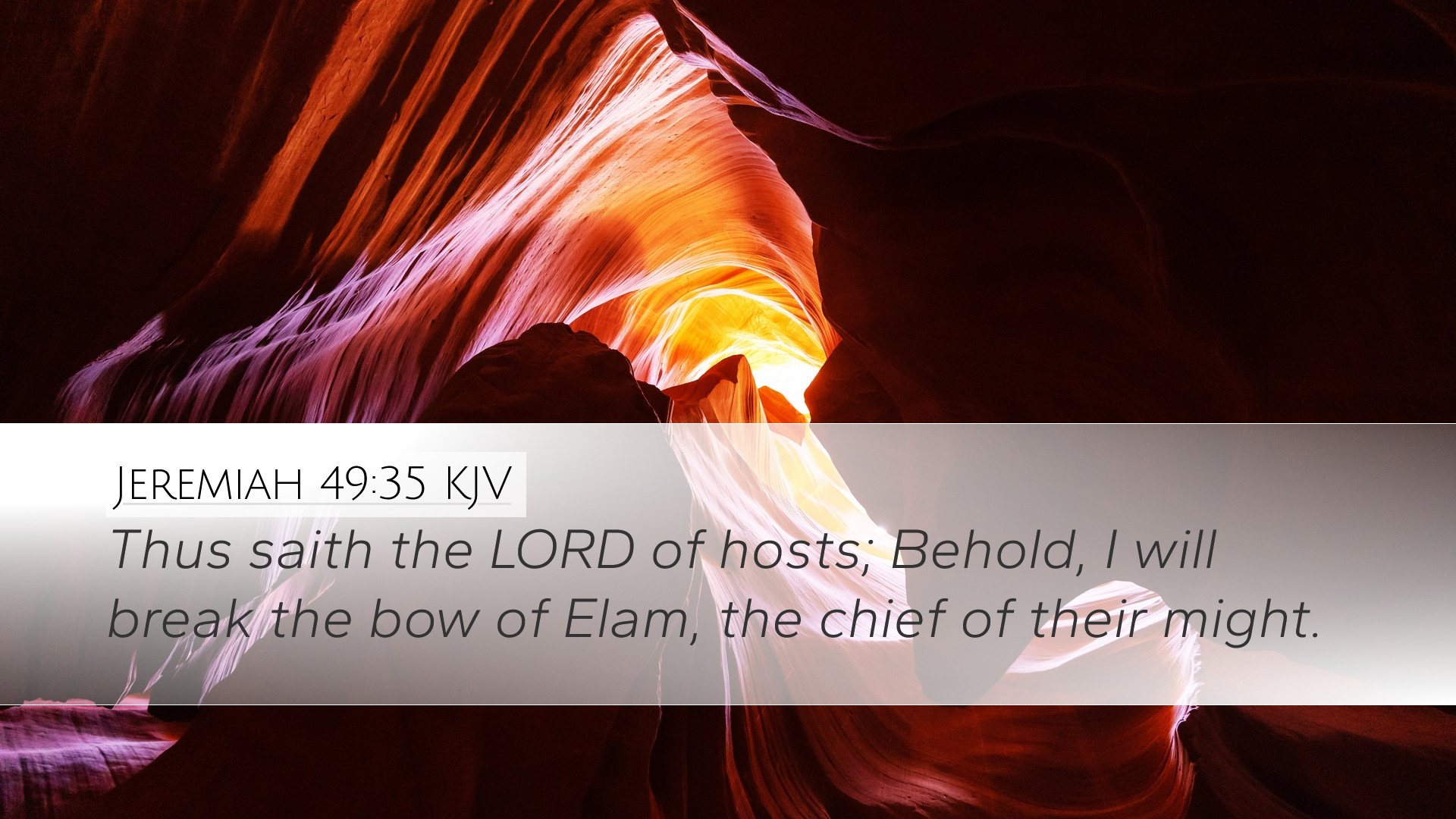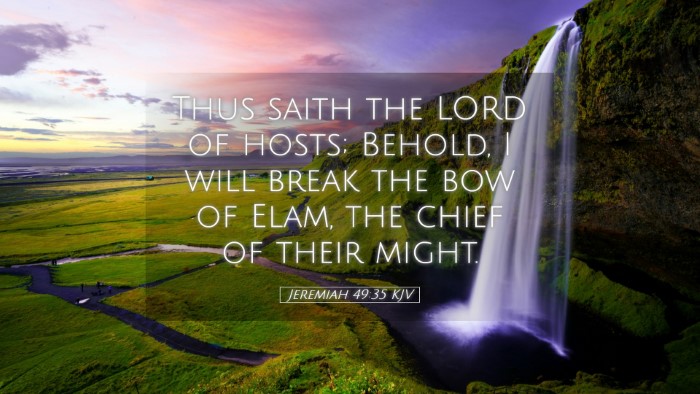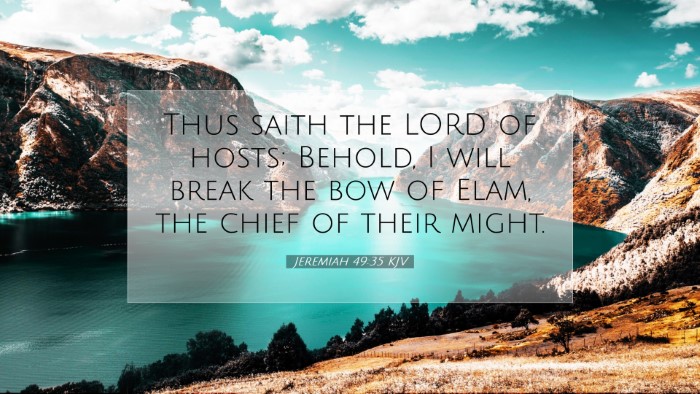Commentary on Jeremiah 49:35
Verse Reference: Jeremiah 49:35: "Thus saith the Lord of hosts; Behold, I will break the bow of Elam, the chief of their might."
Introduction
The passage of Jeremiah 49:35 reflects a prophetic announcement regarding the nation of Elam, situated east of Babylon and representing an important historical and geopolitical entity in the context of ancient Near Eastern affairs. The context around this verse is full of implications for understanding God's sovereignty in the affairs of nations and His capacity to judge and disrupt worldly powers.
Key Themes
- Divine Judgment: The Lord's declaration about breaking the bow of Elam serves as a symbol of divine judgment against a nation perceived as mighty.
- Symbolism of the Bow: The bow represents military strength and power; breaking the bow signifies a complete dismantling of Elам's capability to wage war.
- God's Sovereignty: This verse emphasizes God's absolute authority over the affairs of nations, validating the prophetic role of Jeremiah as a mouthpiece for divine revelations.
Commentary Insights
Matthew Henry Commentary
Matthew Henry, in his classic commentary, emphasizes the certainty of God's word in fulfilling judgment. He elucidates that the phrase "Thus saith the Lord" establishes that what follows is not merely Jeremiah's opinion but an infallible statement from the Almighty. Henry remarks on the significance of Elam's bow, which symbolizes its military might, suggesting that the breaking of the bow represents the collapse of their defenses. In the broader narrative, this serves as a reminder that the might of nations is ultimately subject to the will of God.
Albert Barnes' Notes on the Bible
Albert Barnes expands on the implications of Elam's destruction, noting that this prophetic statement serves as a warning to other nations of the inevitable judgments of God on those who oppress His people or pursue ungodliness. He points out that Elam, often engaged in conflict with the surrounding regions, here faces divine retribution that will strip it of power and influence. Barnes draws attention to the geopolitical instability of the time, supporting the notion that God uses nations as instruments of His will, either for judgment or mercy.
Adam Clarke's Commentary
Adam Clarke offers a detailed historical perspective, noting that Elam had been a significant player in the geopolitical landscape of the ancient world, often at odds with the Babylonians. Clarke points out that God's pronouncement of judgment goes beyond mere military defeat; it signifies a spiritual lesson for Israel and the surrounding nations about reliance on human strength versus divine support. Clarke emphasizes the completeness of God's judgment, likening it to the breaking of the bow, which would render Elam completely powerless.
Theological Reflections
The Nature of God’s Justice
This verse illustrates the severity of God's justice and the importance of accountability for nations that oppose His people. Pastors and theologians might find this a sobering reminder of the present-day implications of divine oversight where nations still face consequences for immorality and unfaithfulness.
Historical Context
Understanding the historical context of Elam is crucial. It historically represented a region that vacillated between powerful and vulnerable states. Reflecting on this allows pastors and teachers to draw parallels with today’s geopolitical landscapes and the role of faith in national integrity.
Applications for Today
-
Personal Reflection: Individuals may examine their reliance on worldly strength and seek to place their trust solely in God's power and provision.
-
Church Leadership: The church can use this verse as a catalyst for prayer concerning national leaders and situations where justice must prevail.
-
The Role of Prophecy: Believers are encouraged to understand the vitality of prophetic insights in their lives and societies, much like Jeremiah’s warnings to Israel and surrounding nations.
Conclusion
In Jeremiah 49:35, we are confronted not only with a historical record of God's judgment upon Elam but also with timeless truths regarding Divine sovereignty, justice, and the necessity of depending on God. The insights drawn from public domain commentaries elucidate these themes for a modern audience, serving to inspire pastors, students, and theologians towards a deeper understanding and application of these profound biblical principles.


